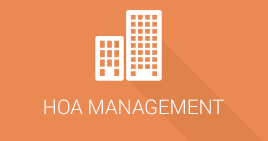Do you want to know how to avoid getting tax penalties as a Vancouver real estate investor?
Tax season might seem like a scary time, especially for real estate investors. Whether you're starting out or a seasoned real estate pro, you might struggle to navigate this tricky legal obligation.
Taxes for real estate investors don't have to get complicated, though. In the guide below, we'll get into everything you need to know about doing your taxes when you invest in real estate. Keep reading to learn more to make sure your business thrives this tax season!
Understand Your Deadlines
One of the easiest ways to incur penalties is to fail to pay your taxes on time. The IRS expects you to know when you should pay your taxes. As such, it's important that you do your research beforehand to understand when you need to pay.
If you're in a partnership, you'll have to file your taxes by March 15th. Individual investors get until April 15th to file their taxes.
If you're struggling to get everything together by those dates, file for an extension. Should your extension get granted, partnerships will have until September 15th to file. Individuals with an extension must file before October 15th.
Keep Track of Your Expenses
Throughout the year, you should keep track of your expenses. This will make it easier to report your tax deductions when it's time to file taxes for real estate investors.
Real estate investors can write off many of their business expenses as deductions. Some examples of common deductions include:
- Advertising vacancies in hopes of getting tenants
- Depreciation
- Mortgage interests
- Insurance
- Property taxes
- Expenses related to running an office, such as paying for internet or work-related computer maintenance. You can even deduct office expenses if you operate your investing business out of your home.
For a full list of what you can deduct, consult an accountant.
Gather Your Documents
Next, you'll need to gather all the necessary documents. This includes any forms you might need to fill out for the IRS. For example, if you're self-employed, you might need to fill out a 1099-MISC and an income statement.
Real estate investors who are in partnerships should also fill out a Schedule K-1(s).
You may also need a record of the payments you made throughout the year. Any documentation of closings, sales, or refinances should be prepared.
The types of documents you need will depend on your real estate business. Your Vancouver accountant will provide you with more information. Talk to them well before you have to file your real estate taxes. That way, you'll ensure you have enough time to do everything.
Go Beyond Taxes for Real Estate Investors
Learning about taxes for real estate investors helps you make the most out of tax season and maybe even get a good tax return.
Yet, running a good real estate business requires more than following your legal obligations. Property management teams will help you manage your Vancouver-based investments.
If you're looking for a property management team, let us help! We provide full property management services.
Contact us today to learn more about what we can do for you!










.jpg)







